Medicines Supply Security Guarantee
Page last updated: 12 September 2025
Global medicine shortages interrupt the supply of medicines that are the mainstay of treatment for some of the most prevalent health conditions in the Australian community. In 2019 and 2020, medicines supplied by manufacturers for $4 or less per pack were the most susceptible.
Amendments made by the National Health Amendment (Enhancing the Pharmaceutical Benefits Scheme) Act 2021 (Cth) (Amendment Act) give effect to the commitments in the new Strategic Agreements with the medicines industry, which includes the Minimum Stockholding Requirements. The Minimum Stockholding Requirements are designed to help protect Australian patients, pharmacists, and prescribers from the impact of global medicines shortages.
From 1 July 2023, Minimum Stockholding Requirements apply which require manufacturers to hold a minimum of either 4 or 6 months’ of stock in Australia for certain PBS listed medicines, referred to as ‘Designated Brands’. While these measures will not prevent shortages that are outside of the control of Australian companies, they will help to ensure that Australian manufacturers are better placed to continue supply when global disruptions occur. Greater buffers allow time for supply disruptions to be resolved and ensure better continuity of supply for Australians, including through identifying alternative sources of supply (where possible).
The investment by the medicines industry in managing supply chain risks through the minimum stockholding requirements is supported by the Australian Government through one-off price increases on 1 October 2022, price disclosure thresholds and floor price protections for designated brands.
Price increases on 1 October 2022
A one-off price increase was applied on 1 October 2022 to low-cost medicines that met the criteria under section 104B of the Amendment Act. For medicines on the F2 formulary, where the Approved Ex-Manufacturer Price (AEMP) on 30 September 2022 was:
- $2 or less, the AEMP increased to $2.50;
- more than $2 but not more than $3, the AEMP increased by $0.50; and
- more than $3 but less than $3.50, the AEMP increased to $3.50.
Medicines that are listed in Schedule 2 of the Poisons Standard, in a quantity that is equal to or greater than the PBS quantity, did not receive a price increase.
A list of medicines subject to price increases on 1 October 2022 and the confirmed AEMP can be found in the 1 October 2022 price increase list (Excel 199 KB).
Further information regarding the 1 October 2022 price increases is available in the ‘PBS Price Increases on 1 October 2022 – Fact Sheet’ (PDF 216KB) - (Word 42KB).




